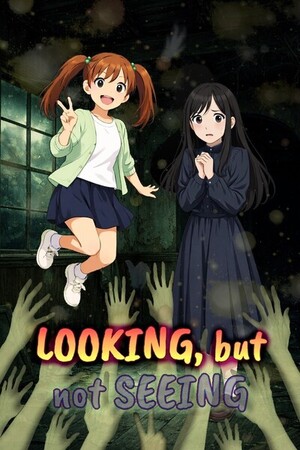Chapter 3:
Chapter 2 - Warmth Before White
When The Crow Follows
Today I shared the evening shift with Arima. This evening started as usual. By the time I got to the kōban, Arima was leaning against his bike, arms crossed.
“You're late.”
“By two minutes,” I replied, locking up my bike.
He smirked while adjusting his glasses, “Slipping already, Kuroda.”
We signed into the logbook and headed out together on patrol. Evenings in Kagehara were quiet, with no traffic. No noise. Just cicadas chirping and the occasional bark from dogs.
Arima tilted his head toward the slope up ahead. “Let’s head up to Kagurazaka Shrine. They’re setting up for the festival, there might be some folks still around.”
“Bit late, isn’t it?” I asked.
He shrugged. “People forget stuff. Lantern cords, offering trays... Plus, it's kind of nice up there in the evening.”
At the heart of Kagehara sits the Kagurazaka Shrine, perched just where the eastern hills begin to rise. The villagers say it’s older than any house in the village — older, even than the road that leads to it.
Every summer, there's a festival called Kagurazaka no Yoru Matsuri hosted at the shrine. Girls in Yukata dance barefoot on the worn stones, performing the Kagura — a ritual dance said to please the gods.
Some say the gods used to descend from the mountain forests just to watch. If the dance was good enough, they’d bless the harvest.
And if it wasn’t… they’d choose someone at random to curse — a child, a mother, a farmer — and mark their bloodline forever.
We bumped into the village head, Fukuda-san. He was standing by the small public notice board with a few elders, pinning up some festival flyers.
In rural villages like Kagehara, the village head — or sonchō, wasn’t just some ceremonial title. He was the closest thing to a mayor.
He managed local affairs, settled disputes between neighbors, coordinated festivals, and acted as the bridge between the villagers and any government office.
In places like this, where everyone knew each other and problems didn’t always get solved by calling the police, the sonchō's words carried serious weight.
Sonchō doesn’t stand alone either. Behind him, always nearby, are the elders — mostly from the Tachibana family, one of the founding bloodlines of Kagehara.
They don’t run the village, not officially, but no decision is made without a nod from their direction.
“Ah, Kuroda. Saitō. Out making your rounds?” asked Fukuda-san.
I nodded politely "Yes sir. Just passing through. Things seem busy today."
"Festival's tomorrow. You know how it gets, everyone's rushing last-minute like we didn’t have a whole year to prepare." Fukuda replied.
Arima smirks. "Some things never change."
"Are you working the evening shift tomorrow?"
“Yeah. I’ve got the later half with Takeda-san.” I replied.
"Well, if you spot any of the elders sneaking off with the sake barrels again, tell them I’m watching," Fukuda said with a sly grin.
I chuckled, "I’ll be sure to pass that along."
"Alright then. Don’t let me hold you up."
Arima and I shortly left the shrine and continued our patrol around till the moon gradually kicked in and we headed back to the koban.
“Shifts almost over.” Arima sighed.
I sat on Hayato's chair, “shame I’ll be on patrol duty with Takeda tomorrow during the festival.”
On Hayato's desk were doodles. Badly drawn cats, one of which has a speech bubble saying “Officer Hayato: Defender of Kagehara”. Then, wedged beneath his unfinished reports, are crudely drawn caricatures of Takeda. His forehead was exaggerated to cartoonish proportions. One even has speech bubbles: “Tch, lazy brats, I do all the work around here!”
“Y’know, I don’t mind covering for you.”
“Don’t worry about it. Besides, I'd rather have you babysit those 2 demons—Yuki and Hina instead of me.” I chuckled with a grin.
After finishing some paperwork, Arima and I got out of uniform.
“Why don’t you come over for dinner?” I asked Arima.
“I shouldn’t,” he said with a sheepish grin. “I burned rice last time. I owe my kitchen an apology.”
I chuckled and bid my goodbyes to him.



Please sign in to leave a comment.